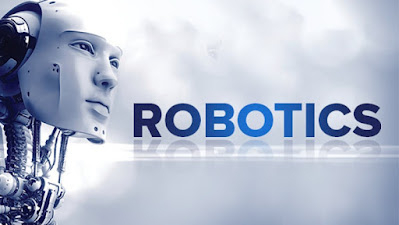

By the end of the course, participants will be able to:
• Understand the basic principles of robotics
• Design and build simple robotic systems
• Integrate sensors and actuators into robotic projects
• Program robots to perform specific tasks
• Implement basic control systems
• Troubleshoot and debug robotic systems
• Work collaboratively on robotic projects
• Beginners with no prior robotics experience
• Students interested in STEM fields
• Hobbyists and enthusiasts in robotics
• Professionals looking to gain foundational knowledge in robotics
• Educators seeking to introduce robotics into their curriculum
• Presentations by the course leader, including case examples
• Hands-on building and programming exercises
• Group work on projects - design, build, and test robots
• Interactive demonstrations and practical sessions
• Quizzes and interactive Q&A sessions
• Real-world project development
DAY 1: Introduction to Robotics
• Welcome and course overview
• History and evolution of robotics
• Overview of different types of robots
• Basic components of a robot: Sensors, actuators, and controllers
• Introduction to robot design and mechanics
• Safety considerations in robotics
DAY 2: Robotics Hardware
• Detailed study of sensors: Types and applications
• Actuators: Motors, servos, and other mechanisms
• Power sources and management
• Building the robot chassis: Materials and construction techniques
• Introduction to microcontrollers and single-board computers (e.g., Arduino, Raspberry Pi)
DAY 3: Robotics Software and Programming
• Overview of robotics programming languages
• Setting up the programming environment
• Basic programming concepts for robotics
• Writing and running simple programs to control motors and sensors
• Introduction to robot operating systems (ROS)
DAY 4: Control Systems and Navigation
• Basics of control theory
• Implementing simple control systems: Open-loop and closed-loop control
• Sensor integration and data processing
• Navigation and path planning
• Obstacle detection and avoidance
DAY 5: Advanced Topics and Project Work
• Introduction to machine learning and AI in robotics
• Swarm robotics and collaborative robots
• Ethical considerations in robotics
• Developing a complex robot project: Planning, building, and testing
• Course review and Q&A
• Final project presentations and feedback
• Next steps and further learning resources
CDGA attendance certificate will be issued to all attendees completing minimum of 80% of the total course duration
| Code | Date | Venue | Fees | Register |
|---|---|---|---|---|
| MI259-02 | 05-04-2026 | Dubai | USD 5450 | |
| MI259-03 | 20-07-2026 | Kuala-Lumpur | USD 5950 | |
| MI259-04 | 25-10-2026 | Doha | USD 5450 |
Providing services with a high quality that are satisfying the requirements
Appling the specifications and legalizations to ensure the quality of service.
Best utilization of resources for continually improving the business activities.
CDGA keen to selects highly technical instructors based on professional field experience
Since CDGA was established, it considered a training partner for world class oil & gas institution
3012, Block 3, 30 Euro Business Park, Little Island, Co. Cork, T45 V220, Ireland
Mon to Fri 09:00 AM to 06:00 PM
Contact Us anytime!
Request Info